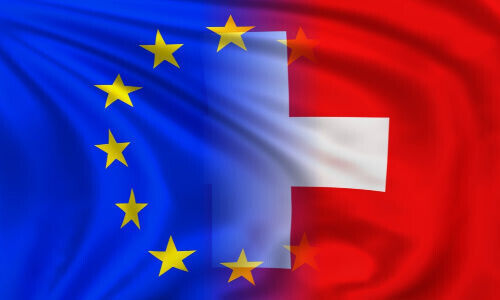Brussels wants to more tightly regulate banking from outside of the European Union – a move aimed at the City of London but which will likely hit Switzerland with collateral damage.
The European Union is planning to more closely supervise a pastiche of national arrangements under which banks in Europe but outside the bloc target clientele inside, the «Financial Times» (behind paywall) reported on Monday. This cross-border crackdown is central to streamlining global banks within the EU, and hands more heft to regulators.
European Central Bank officials are irritated over rising bilateral agreements following Britain's exit from the bloc this year. Such waivers and permissions are also commonly used by banks in Switzerland and the U.S. to gain market access to the bloc's 27 member states.
Swiss Pacts Voided?
A series of agreements would be voided if the proposal passes EU parliament. This understandably has Switzerland's powerful banking lobby worried.
The Swiss banking lobby argued that open access has benefits for the EU, as it «…contributes to open and integrated markets and, therefore, is in the interest of EU investors and hence ultimately in the interest of the EU». Swiss diplomats struggled for years before in 2015 clinching a light-touch scheme to access the German market – the largest one for Swiss banks.
Relations At Low Point
In a vote which shaped Switzerland's attitude to its closest trading neighbors to this day, the alpine nation in 1992 rejected joining the European Economic Area. Nearly three decades later, relations are at a historic low, with the two negotiating partners walking away from a framework agreement that would have safeguarded market access to the bloc.
British voters' 2016 decision to leave the EU has added a complication to the Swiss-EU relationship: with Britain out, Switzerland in theory has an ally.
The EU in turn has made clear that Switzerland think about more fundamental principles of its relationship with the bloc, during Swiss foreign minister Ignazio Cassis most recent visit to Brussels — a clear signal that it is no longer willing to accept exceptions and waivers of the sort that Bern has long benefited from.


































